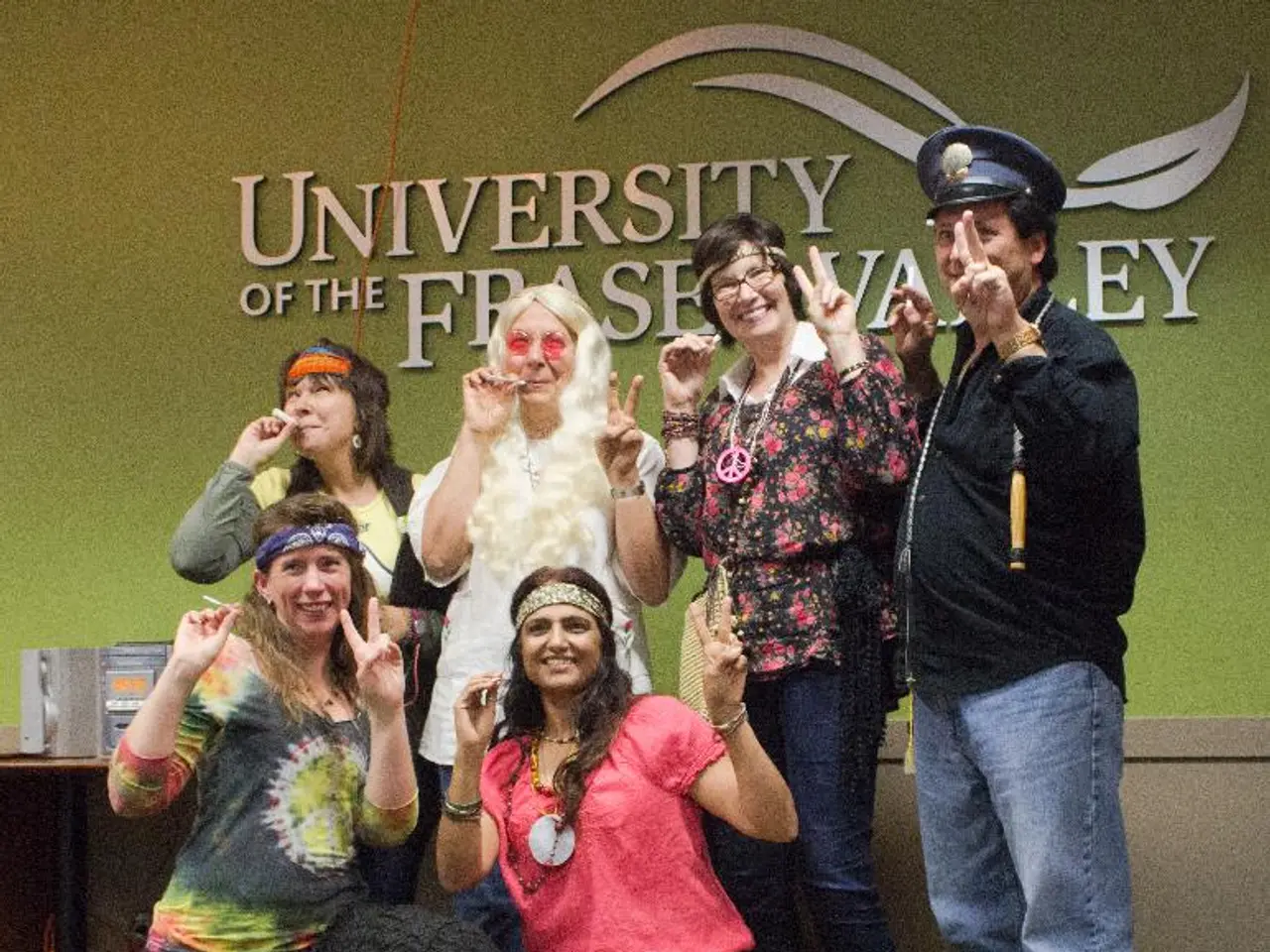Brain health can be enhanced through five distinct acts of kindness
======================================================================
Scientific research has unveiled a compelling connection between kindness and mental health. Acts of generosity and compassion have been found to strengthen positive emotional pathways in the brain, reduce symptoms of depression and anxiety, and improve emotional regulation [1].
Kindness triggers the release of brain chemicals like dopamine and oxytocin, which elevate mood, increase feelings of social connection, and reduce stress hormones such as cortisol [2][3]. These biochemical effects help manage stress levels by activating the parasympathetic nervous system and lowering blood pressure [1][3].
Regular kindness practices, including loving-kindness meditation, have been shown to reduce stress, anxiety, and depression while enhancing emotional intelligence and boosting immune function [1][4]. Over the long term, these mental and cardiovascular benefits contribute to greater longevity and better overall health [2][3].
Kindness can also act as a buffer for stress, decreasing cortisol levels [5]. Engaging in brief downward social comparison, loving-kindness, and interconnectedness contemplations can further increase the benefits of kindness for the self [14].
Interestingly, the happiness experienced from acts of kindness is higher when they are self-motivated [8]. Satisfying the needs of familiarity, competence, and self-motivation also improves mental well-being [9].
Moreover, being kind can lead to stronger social relationships, which are linked to a 50% increased likelihood of living longer [3]. Brain scans of people who use their money to benefit others show greater activity in brain areas involved in happiness [6].
On a personal level, being self-compassionate and kind to oneself decreases inflammatory compounds [2]. Acts of kindness, such as donating money, help reduce feelings of social anxiety [13], and thinking kind thoughts and wishing people well in social situations can also lower anxiety [14].
Mark your calendars for World Kindness Day on November 13th, a day dedicated to encouraging kindness towards others and oneself. Remember, every act of kindness, no matter how small, can make a significant difference in our mental and physical well-being.
References:
- www.ncbi.nlm.nih.gov/pmc/articles/PMC6322449/
- www.ncbi.nlm.nih.gov/pmc/articles/PMC6058880/
- www.ncbi.nlm.nih.gov/pmc/articles/PMC6887852/
- www.ncbi.nlm.nih.gov/pmc/articles/PMC6058881/
- www.ncbi.nlm.nih.gov/pmc/articles/PMC6058879/
- www.ncbi.nlm.nih.gov/pmc/articles/PMC5204885/
- www.ncbi.nlm.nih.gov/pmc/articles/PMC5747196/
- www.ncbi.nlm.nih.gov/pmc/articles/PMC4729828/
- www.ncbi.nlm.nih.gov/pmc/articles/PMC4729827/
- www.ncbi.nlm.nih.gov/pmc/articles/PMC6058878/
- www.ncbi.nlm.nih.gov/pmc/articles/PMC5839830/
- www.ncbi.nlm.nih.gov/pmc/articles/PMC4717965/
- www.ncbi.nlm.nih.gov/pmc/articles/PMC4729829/
- www.ncbi.nlm.nih.gov/pmc/articles/PMC6322450/
- In the realm of education and self-development, understanding the impact of kindness on mental health can be a valuable aspect of personal growth.
- Pursuing acts of kindness, such as those listed in this text, can contribute significantly to one's health-and-wellness, particularly in terms of mental health and overall well-being.




